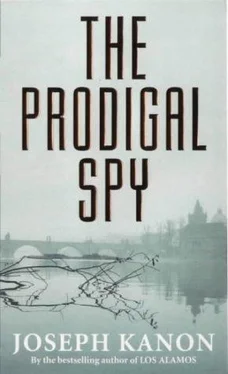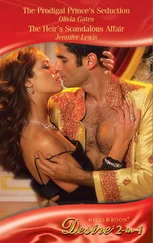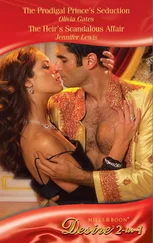He looked up. Everything quiet. Was there no one to help? The balcony above them. Had no one heard? Or had there only been a thud, a dull thump onto the grass cushion? He rocked harder, cradling the head, heavy in his lap, oblivious to the dampness of the blood. When he glanced at the pajamas and saw the dark stain on the pants where his father had soiled himself, a final embarrassment, he held the head closer, comforting a child, telling him it didn’t matter. The quiet was unbearable, death itself, and he saw why people keened, made any sound to break the stillness so they weren’t swallowed up in it too. But a part of you went anyway, seeping out like blood. He stared down again at the face, smooth, irretrievable, somewhere else. The only thing he had ever wanted.
He didn’t know how long he knelt there, out of the world, but when he came back all his senses were there at once — the sound of a car passing in the street, the stickiness on his pants, the tingling surge of adrenalin fear. He should call somebody. Weren’t there neighbors? Gently he moved his father’s head, laying it back on the grass, and stood up. Maybe he shouldn’t be seen at all. But now what did it matter? He walked over to the sidewalk and followed it around the building to the door.
A jumble of nameplates, two apartments to a floor, Kotlar on the top. He ignored the small elevator, afraid of being enclosed, and climbed the stairs, the landings bright through a wall of glass brick. Moderne. Instinctively he raised his hand to knock on the door, but who would be there? Then he saw that it was already ajar, as if someone hadn’t closed it properly. Who? He pushed it quietly and stepped into the chilly apartment.
“Anna?” he called out, hearing nothing but the sound of a clock. He looked around the room-low Scandinavian furniture, bookcases, everything in order. The sliding door to the balcony was closed. He opened it, stepped out, and looked down. The body was still there, slightly to the right. He saw then that the balcony extended along to the next room and that the door there was open. He moved toward it, stopping when he saw the marks on the painted rail. Here? But his father had been barefoot, in pajamas, nothing to scrape against.
The bedroom was a mess, covers flung back, pillows scattered, as if he’d got up in a hurry. The night table was upright but at an angle, some pill vials and a book knocked to the floor, the lamp pushed near the edge. The desk chair was pulled back, out of place, where someone would bump into it in the dark. The desk wasn’t ransacked, the drawers still in place, but somehow disheveled, at odds with the neat living room.
He stood for a minute, imagining how it might have been. The sudden impulse in bed, knocking against the night table as he got up, staggering (drunk?), bumping against the desk, yanking the chair out of the way, the rush to the balcony, and over. Soiling himself in the terror of the plunge. None of that happened. It would have been deliberate, planned out like everything else. A note. Nick looked on the desk, moving some of the papers aside, and then stopped. You weren’t supposed to disturb the scene of the crime. The phrase struck him, another adrenalin surge. That’s what it was, wasn’t it? He looked at the room again. Another phrase: signs of struggle. Someone pulling him off the bed, dragging him, knocking against the furniture. Had he screamed? Nick leaned against the desk, lightheaded. Had he begged them to stop, fought back, one final swing, knowing his luck had run out? But no one had heard. The body was still lying there, unreported. Nick imagined instead a hand clamped over his mouth, muffling him, his arms thrashing as they forced him out, an old man, so terrified that he went in his pants.
No note. The papers were bills, scattered now from what must have been a neat pile, making sure everything was paid before he got on the train. Nick opened a drawer. Was there really a list? There seemed to have been no effort to find it, no search. The inside of the desk was untouched, folders of letters and bills and what seemed to be official documents with his name, the paper trail of socialist life.
Nick heard a noise in the hall, the whirring of the elevator. One of the neighbors would see the body now, glance across the lawn as he went out, curious, then cry out and run back for the telephone. Should he do it first? But the idea of calling the police in Czech defeated him. Let someone else do it. Maybe instead he should slip down the stairs, go back to the hotel and his own life. Call Anna later. What more could he do here? All this paper, receipts and letters, some in Russian, the desk of a foreigner. Only on the grass, strangely young again, had he been his father.
In the top drawer he brushed aside pens and paper clips. A passport, Russian, his father’s. He drew out a manila envelope dark with age. Newspaper clippings, in English. His disappearance, his press conference, a loose scrapbook of disinformation. Why had he saved them? Then Nick saw that each of the clippings had family photographs-the three of them in front of the house on 2nd Street; the old wedding picture, blurred on newsprint; his parents shaking Truman’s hand at a reception. Their tabloid life. At the bottom of the pile were two real photographs, worn at the edges. His mother, young, maybe during the war, shoulder pads and short skirt, a vivid lipstick smile, her mouth open with the beginning of a laugh. The other was a boy in hockey gear at Lasker Rink, a wintry Central Park in the background, the boy unaware that he was being photographed by a spy. Nick looked at himself. He wished now that he had been smiling, that every time his father had looked at it he’d seen what he wanted to see, his happy boy, not somebody caught from behind a tree. Too late. His eyes filled, and he wanted to make a noise again. The photographs were like the stillness of death. If you gave in to them, you drifted away to another place. Nothing ever came back.
He was still looking at the pictures when he heard the sound in the next room. He raised his head. Two policemen faced him, guns drawn, the small machine guns they held with two hands, more menacing than revolvers. One of them shouted in Czech, looking at the blood on his pants.
“I’m sorry. I didn’t hear-”
Another shout. He pointed Nick toward the wall with the gun and said something in Czech, brisk. Now the gun was being jerked up, a signal to raise his hands. When he did, staring at the gun, the other frisked him, patting up and down his sides.
“I was going to call-”
Then a storm of Czech, perhaps to each other, their voices rising in frustration when he didn’t answer.
“I don’t understand.” But then he did. When they snapped on the handcuffs and pushed him out of the room, the gun poking at his back, he understood, dazed, that he was being arrested.
There were people on the lawn now, huddled over the body, some in uniform, one old lady standing behind, clutching at her winter coat-the neighbor, finally? — but they wouldn’t let him stop, pushing him with the guns down the path. He bumped his head against the car when they shoved him in, the sharp crack of pain the only thing real in what seemed to be a cartoon. His wrists, clamped behind him, were caught in the metal cuffs. One of the policemen in the front seat swiveled around, pointing the gun at him, and he watched the barrel bounce against the seat as the car took off down the rough road. A pothole could set it off. He closed his eyes. No siren, just the racing car, rumbling now over cobbles, taking a corner too fast, the speed itself official. He was pitched forward when they stopped, almost into the gun, then doors slammed and a hand pulled roughly at his arm.
The building was a blur, bulletin boards and clicking typewriters, heads looking up. They’d take him to a desk now, to someone who spoke English, so he could explain.
Читать дальше












